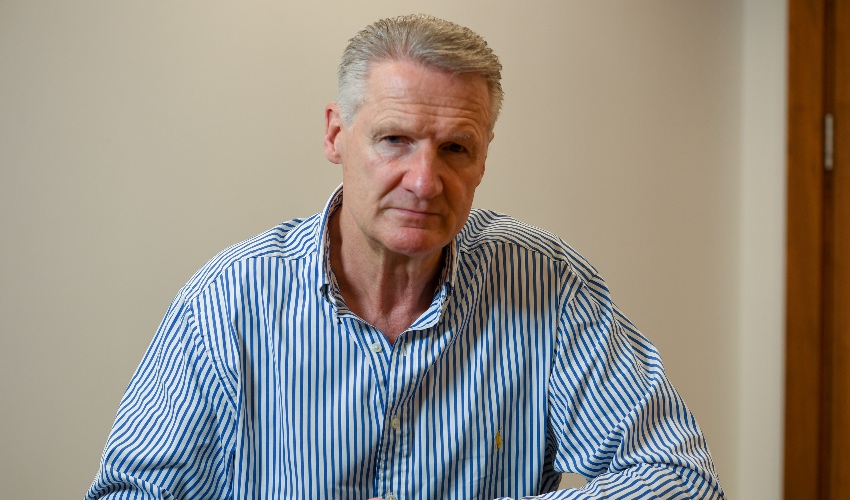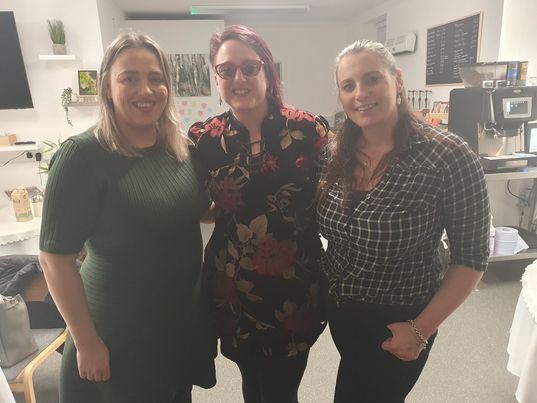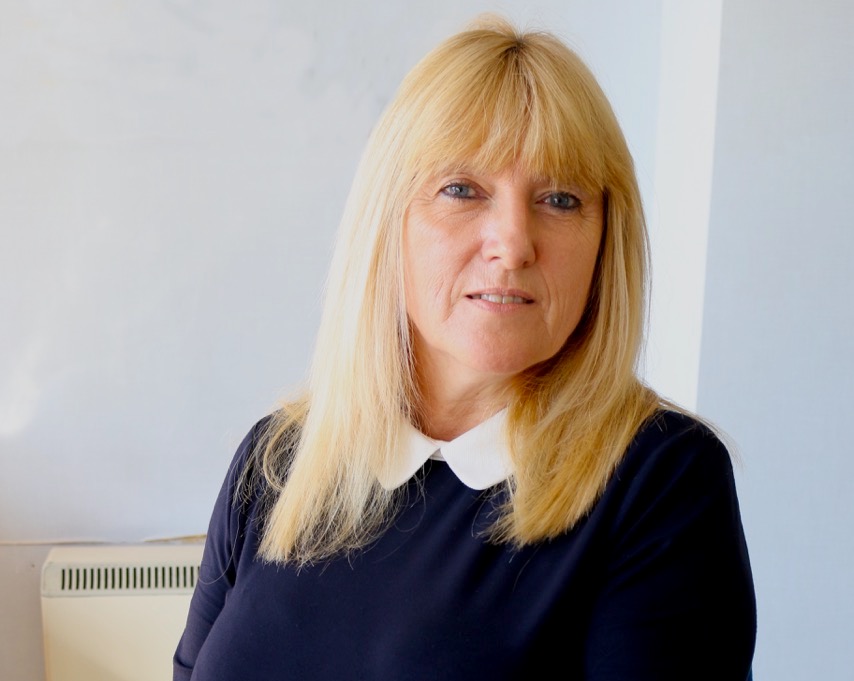


Charities have expressed their shock and upset after it emerged that strategies years in the making aimed at preventing suicide and supporting individuals with dementia, ADHD, and autism were not given funding.
Mental Health Director Andy Weir and Health Minister Tom Binet recently told the Health and Social Security Panel that no funding has been allocated to governmental strategies for supporting the mental health of islanders.
Deputy Binet said this reflected a trend of government officials creating strategies without funding, as well as wider underinvestment in areas of the Health Department.
Although the Health Department requested £1 million in funding to implement strategies for dementia, neurodiversity, and suicide prevention, the funds were never allocated.

Pictured: Mental Health Director Andy Weir.
This means that the Adult Mental Health Service does not have the money to implement proposed actions and recommendations that form the basis of Health strategies that were developed through public engagement and consultation.
The Health Minister said: "It is very, very clear to me that we are suffering from probably a decade or more of underinvestment in a lot of areas."
He added that he was "disturbed" to discover that the dementia strategy lacked funding to implement the proposed actions outlined in six pages of suggestions developed over a decade in response to calls from local charity Dementia Jersey.
The proposals aimed to provide support for individuals with dementia, as well as their caregivers and families.

Pictured: Health Minister Tom Binet said he was "disturbed" to discover that the dementia strategy lacked funding.
Deputy Binet said: "We have not got the money we need to implement the dementia strategy that we are putting forward.
"The dementia strategy has been put together without any funding, which is a cause of concern to me because I see this happening increasingly in Government where people run off and they have a strategy or a policy only to find that there is not any money to back it up."
Claudine Snape, CEO of Dementia Jersey, said she was "stunned" about the lack of funding for the dementia strategy, and called on the government to prepare for the growing impact of dementia on the island.
She said: "I'm stunned the requested funding for the dementia strategy was turned down given how widespread, expensive and distressing current problems are.
"We urgently need a budget for training and more respite options for carers now."

Pictured: Claudine Snape, CEO of Dementia Jersey.
Ms Snape added: "It's also vital we look to the future and scale up our plans bearing in mind dementia is the fastest-growing disease on the island and is set to become the most expensive in the UK by 2030.
"To proceed with no funding to support the dementia strategy feels incredibly short-sighted and is devastating news for people with dementia and their carers who urgently need change.
"There is an unacceptable number of people with dementia stuck in hospital for long periods of time, a lack of capacity from care agencies and residential homes to cater for people with dementia and poor understanding of the condition by many professional staff."

Pictured: “I’m stunned the requested funding for the dementia strategy was turned down given how widespread, expensive and distressing current problems are."
The way many dementia patients remain in hospital due to a lack of care facilities was a problem noted at the Advisory Board Panel meeting in January.
Mental Health Director, Andy Weir said: "17 out of the 40 beds occupied during December were occupied by individuals who did not need to be in hospital."
He explained that this was due to being unable to find placement for individuals with a dementia diagnosis, with one patient waiting over 20 months.
Carly Williams, secretary for the support and advocacy group ADHD Jersey, said she was "shocked" that a strategy could be agreed without the allocation of funding — which she thought would be one of the "key elements" in any strategy.

Pictured (left to right): ADHD Jersey's secretary Carly Williams, project manager Kizz Moon, and founder Rachel Tippet.
Ms Williams added: "It also seems to show a massive disregard for the scale or seriousness of the problems facing those who fall under these umbrellas.
"Without investment in the underlying issues, the government will continue to waste funding in other areas. In practice, they will be spending funds treating the implications of undiagnosed conditions instead.
"It's genuinely appalling that people are on the verge of getting the answers they have waited a lifetime for, feeling like they don't matter, only to have that messaging reinforced by poor government planning."
However, not all charities feel this way.
Autism Jersey, which is collaborating with the government to develop a strategy for autism and neurodiversity, was not concerned about the lack of funding.
Lesley Harrison, Head of Charitable Services at Autism Jersey, said that strategy will be made up of quick wins that have a low cost, while also developing longer-term objectives and a phased approach to implementation over the next few years.

Pictured: Lesley Harrison, Head of Charitable Services at Autism Jersey.
She said: "As with any strategy, it will identify those 'quick wins' that have little or no cost implications, including some which perhaps require a simple review, management or enhancement of existing processes.
"There will also be short, medium and long-term objectives that will be prioritised by those stakeholders and implemented under the direction of a diverse Steering Group with agreed delivery milestones throughout a three-year period.
"This will in turn potentially create a positive economic impact on our small community but will also require financial resources to be created through a strategic alignment of funding from different sources in order to implement key priorities."
The Health Minister confirmed that discussions are ongoing about potential funding reforms and alternative options to secure necessary resources.
These measures include ensuring efficiency and value for money, resubmitting funding bids for future government plans, setting up a cross-ministerial working group, and exploring the possibility of raising taxes.
Responding to a question in the States Assembly last month, Treasury Minister Deputy Elaine Millar rejected the idea of raising income tax to fund improvements in the health service.
She said Jersey does not need to follow the Isle of Man's footsteps — which has increased income tax by 2% to raise money for public healthcare improvements.
Instead, she said that the Treasury Department will look for "real efficiencies" that help manage public sector costs while improving services, rejecting the idea of a binary choice between the two.
Decade-long wait for Jersey dementia strategy coming to an end
INSIGHT: Dementia and us... Why Jersey needs a strategy
Children’s mental health referrals double in just three years
Health considers shutting down ADHD waitlist
Gov to review how mental health medication is prescribed to children
FOCUS: ADHD patients turn to black market amid medication shortages
Comments
Comments on this story express the views of the commentator only, not Bailiwick Publishing. We are unable to guarantee the accuracy of any of those comments.